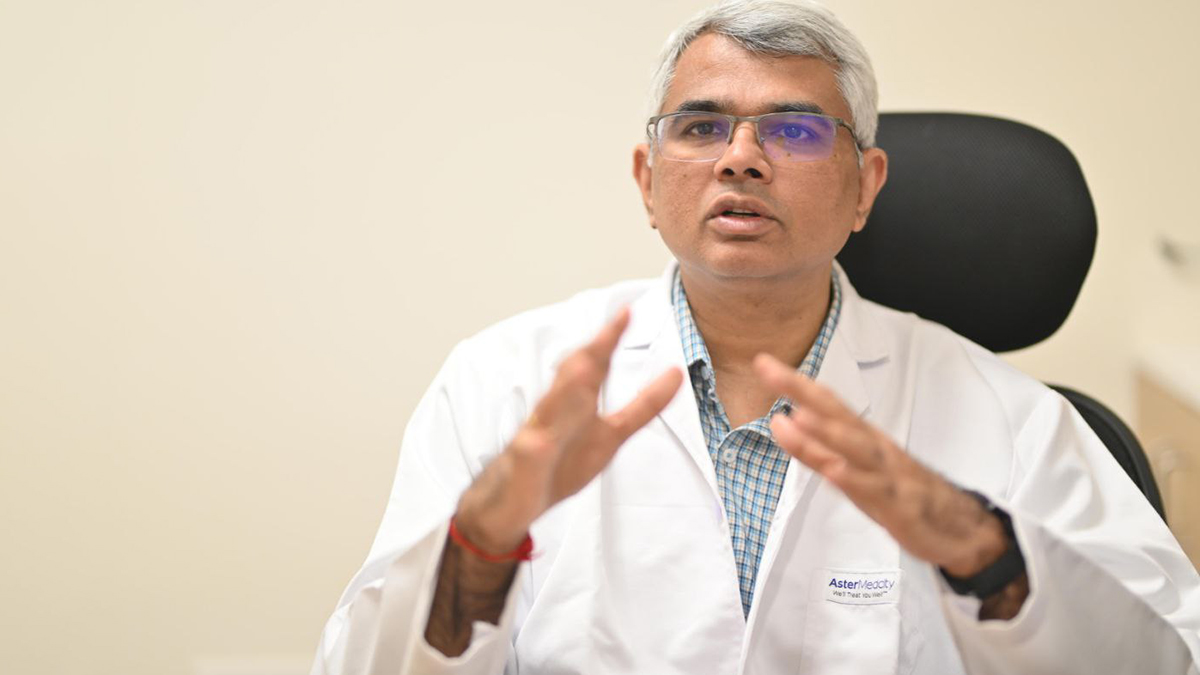Interview/ Dr Anup R. Warrier, senior consultant (infectious disease), Aster Medcity, Kochi
The surge in mpox cases following the outbreak in Africa is unprecedented: 18,000 cases and more than 600 deaths have been reported this year. The World Health Organization has declared it a public health emergency of international concern (PHEIC).
The new virus strain, Clade Ib, is more virulent and infectious than the earlier ones. This mutated strain is causing severe illnesses and an increase in deaths. Outside Africa, cases have been reported in Sweden and Pakistan too. As the world is yet to fully recover from the Covid pandemic, Dr Anup R. Warrier, senior consultant (infectious disease), Aster Medcity, Kochi, explains whether mpox poses a threat. Excerpts from an interview:
What exactly is mpox disease and how did it originate?
The monkeypox virus was discovered in 1958, and the first human case reported in 1970. It is endemic to west Africa, where the consumption of bush-meat, including that from rodents and monkeys, contributed to its rise. However, human-to-human transmission was limited at that time. The virus primarily spread in close quarters, including through sexual contact, and had a mortality rate of only 1 per cent.
So what has changed now?
The Clade II virus that previously caused illness was less severe, but had led to a global outbreak in 2022-23, with mpox cases reported outside of Africa, including in India. Over time, the virus mutated into a more serious strain―Clade Ib―with a higher rate of human-to-human transmission. Recent research has discovered that this strain spreads through the respiratory route, with over 70 per cent of infections occurring in children. The new strain has also caused more deaths; the mortality rate has increased to 10 per cent. Another worrying factor is that this will likely lead to another mutation in the virus.
The WHO has declared the outbreak a PHEIC. What does this mean?
By declaring mpox a public emergency, the WHO has called on countries to take proactive measures, prepare to handle potential cases. Governments should plan for isolation facilities, enhance laboratory capacity, ensure preparedness of healthcare workers, raise community awareness, establish hospital SOPs, and develop a vaccination strategy. At this stage, encouraging public alignment with vaccination efforts is also crucial.
What are the health complications caused by the disease?
Mpox severely affects vulnerable and immunocompromised people. In severe cases, it can lead to secondary bacterial infections, encephalitis, pneumonia and keratitis (which causes blindness). All these can lead to deaths.
What are the symptoms of the disease that we need to watch out for?
The virus has an incubation period of three days to three weeks, with symptoms appearing within 21 days of infection. Unlike influenza, mpox cases are characterised by lymph node enlargement.
Next is the rash stage and it progresses through several stages: macules (red spots), papules (pimple-like), vesicles (filled with clear fluid), and pustules (containing opaque fluid). Skin rashes and fluid typically persist for two to four weeks.
What helps theinfection spread faster?
Since people are travelling across the world, such diseases can spread at a fast rate. Between 2018 and 2021, eight people were diagnosed with Clade II after travelling from Nigeria to the UK, Singapore, Israel and the US.
During the pre-rash/ symptomatic phase, the spread is relatively faster. Also, it spreads through respiratory route as well as fomites (i.e, utensils, clothes, furniture, environment contamination). However, when you compare with Covid, the spread is less severe as it is not airborne, but the major concern is that we are not sure if another mutation would change its traits.
What are the steps required to prevent an outbreak in India?
In terms of symptoms, checking of the lymph nodes for enlargement is the start. Travel and contact history of the person should be tracked to contain the spread. If anyone is arriving from Africa or has come in contact with an infected person, an isolation period should be mandatory. Rapid testing and further treatment would come in the later stages.
What methods would you advise to keep the virus in check?
There is no specific treatment. Medicines originally developed to treat smallpox are used for mpox treatment as well. There is vaccination. Mpox vaccination comes in two doses. It is about 78 per cent effective for two years. Those who have taken the smallpox vaccine can also prevent the spread of the infection to an extent.
Is there a likelihood of another pandemic?
There is a possibility at this stage. However, it will not be as severe as Covid. Compared to Covid or measles, the transmission rate for mpox is low. In the case of measles and Covid, the transmission rate is 80 per cent, while in mpox it is 20 per cent. The steps we followed during the Covid pandemic will come in handy if such a situation arises in India.


